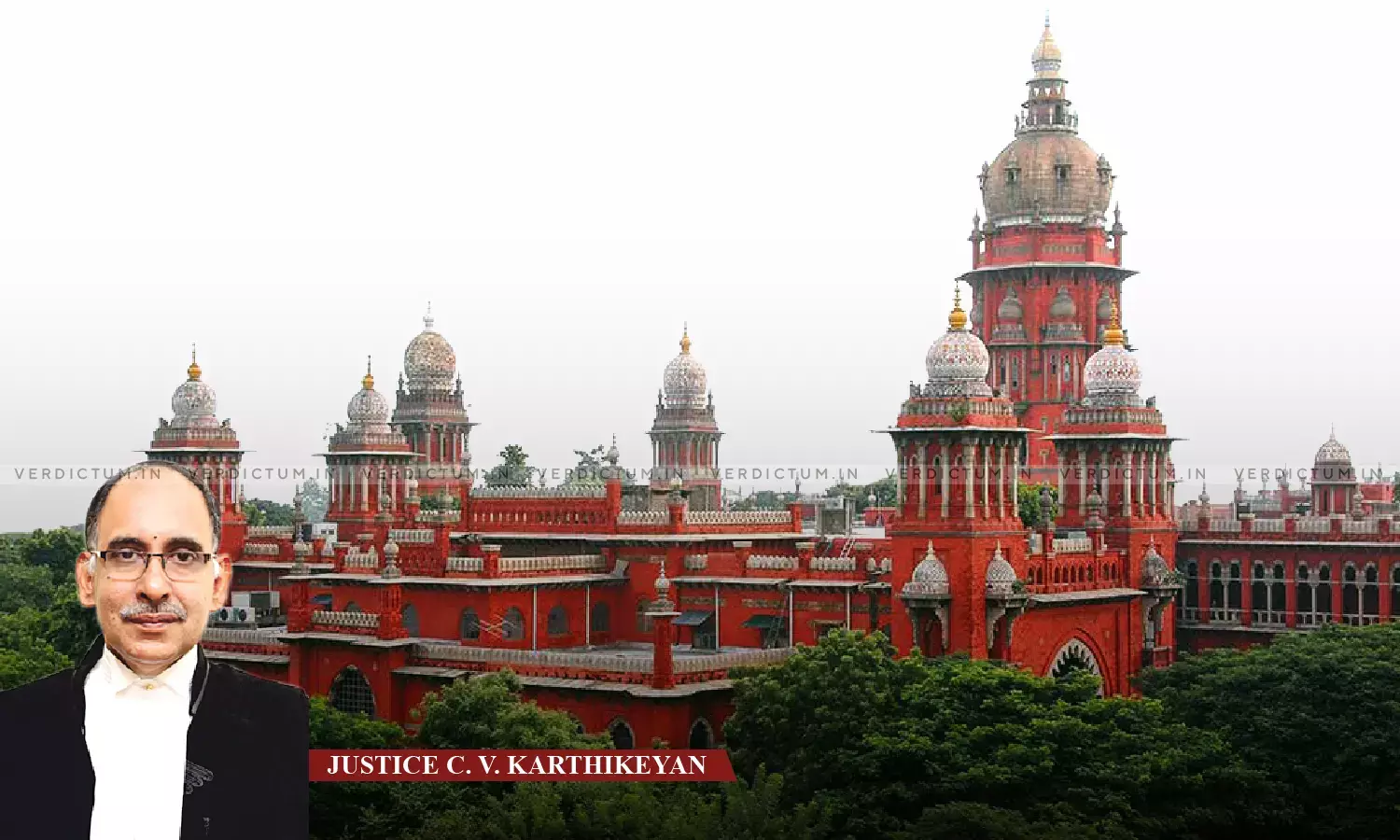Compassionate Appointment Obtained On The Basis Of False Indigent Certificate Is Unsustainable: Madras High Court

Justice C.V. Karthikeyan, Madras High Court
Finding that the charges under Rule 17(b) of the Tamil Nadu Civil Services Rules were framed against the petitioner for suppression of material facts for obtaining an indigent certificate from Tehsildar for purpose of obtaining compassionate appointment, the Madras High Court held that the petitioner deserves no sympathy and accordingly, upheld the decision of the respondent authority for removal of petitioner from service.
A Single Judge Bench of Justice C.V Karthikeyan observed that “There is no complaint again, even during the course of the arguments, that the procedure adopted was not proper. The fact that the mother living separately does not come to the advantage of the petitioner since, the bondage of mother and son subsisted. That can never be frustrated by any court of law. The mother can separate herself from the father of the petitioner but even then merely living separate does not mean that the marital relationship has been severed. It still subsists and it still subsisted on the date of the death of his father”.
Advocate K. Sathish Kumar appeared for the Petitioner, whereas Advocate T.K. Saravanan appeared for the Respondents.
The brief facts of the case were that the petitioner had filed a writ seeking records relating to the proceeding issued by the first respondent (Revenue Divisional Officer - RDO) to quash the same. By the said proceedings, the RDO had cancelled an earlier certificate given by the Tahsildar, whereby it was certified that the family of the petitioner were in indigent circumstances and that no body was in any government service and that they did not have any movable or immovable properties. This certificate was issued consequent to the fact the father of the petitioner, who was working as Health Inspector had died and the petitioner had sought such certificate to seek employment on compassionate basis. The Petitioner also stated that his mother was separated from the family after the death of his father. After thirteen years, the petitioner was appointed to the post of Junior Assistant. Thereafter, the Revenue Divisional Officer issued a show-cause notice proposing to cancel the certificate issued by the Tehsildar, alleging that the petitioner had suppressed a very vital information that his mother was working in a government service as Upgraded Assistant in Cooperative society. Later, complaining that the certificate was cancelled, the petitioner had approached the High Court.
After considering the submission, the Bench found that the present is a case where the petitioner had, for some reason, suppressed a vital information and had obtained the certificate declaring that not only him, but the whole family was, after the death of the father was in indigent circumstances.
The Bench observed that since the age of the Petitioner at the time of obtaining the certificate from Tehsildar was 30 years, he should be aware of the consequences of suppression of vital fact.
The Bench also observed that the petitioner cannot claim ignorance by obtaining a certificate based on such suppression and cannot seek indulgence of the Court.
The Bench went on to observe that the petitioner should have informed the Tehsildar about the fact that his mother was living separately.
However, suppressing such fact, the petitioner had got the indigent certificate from the Tehsildar and obtained a job as Junior Assistant in the respondent office, added the Bench.
The High Court also pointed that “I am not able to understand as to how he could have ever gone to his office knowing that it was obtained on the basis of a false certificate. The entire issue should have rankled him but still he continued to work. He continued to draw salary. That salary is paid from and out of the public exchequer and salary is part of the taxes paid by the general public. Naturally, the petitioner does not deserve any sympathy at all”.
Accordingly, the High Court dismissed the petition.
Cause Title: N. Mahendran v. Director of Public Health and Preventive Medicine and Ors.
Click here to read/download the Order

